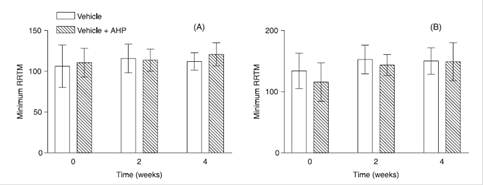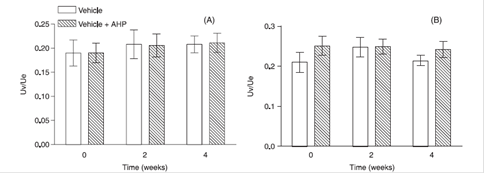abstract
Acetyl hexapeptide-3 has been used in anti-aging topical formulations aimed at improving skin appearance. However, few basic studies address its effects on epidermis and dermis, when vehiculated in topical formulations. Thus, the objective of this study was to determine the clinical efficacy of acetyl hexapeptide-3 using biophysical techniques. For this purpose, formulations with and without acetyl hexapeptide-3 were applied to the ventral forearm and the face area of forty female volunteers. Skin conditions were evaluated after 2 and 4-week long daily applications, by analyzing the stratum corneum water content and the skin mechanical properties, using three instruments, the Corneometer(r) CM 825, CutometerSEM 575 and ReviscometerRV600. All formulations tested increased the stratum corneum water content in the face region, which remained constant until the end of the study. In contrast, only formulations containing acetyl hexapeptide-3 exhibit a significant effect on mechanical properties, by decreasing the anisotropy of the face skin. No significant effects were observed in viscoelasticity parameters. In conclusion, the effects of acetyl hexapeptide-3 on the anisotropy of face skin characterize the compound as an effective ingredient for improving conditions of the cutaneous tissue, when used in anti-aging cosmetic formulations.
Uniterms:
Acetyl hexapeptide-3/use in cosmetic formulations; Acetyl hexapeptide-3/clinical efficacy; Biophysical techniques; Anti-aging/cosmetics; Clinical efficacy; Cosmetics.

 Thumbnail
Thumbnail
 Thumbnail
Thumbnail
 Thumbnail
Thumbnail
 Thumbnail
Thumbnail
 Thumbnail
Thumbnail
 Thumbnail
Thumbnail
 Thumbnail
Thumbnail






